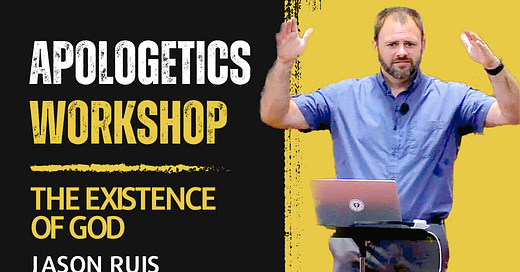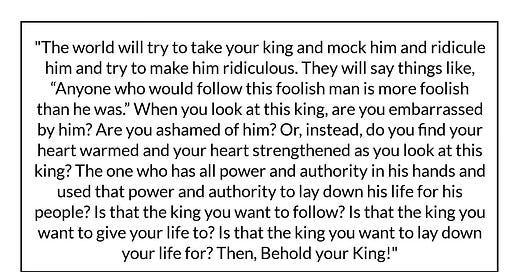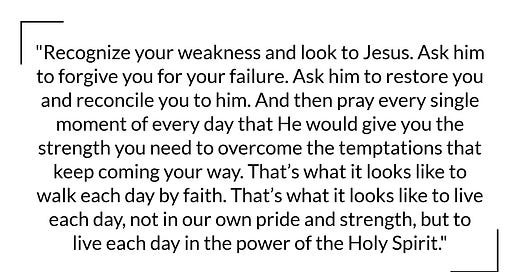
Grace and Weakness
“So to keep me from becoming conceited because of the surpassing greatness of the revelations, a thorn was given me in the flesh, a messenger of Satan to harass me, to keep me from becoming conceited. Three times I pleaded with the Lord about this, that it should leave me. But he said to me, “My grace is sufficient for you, for my power is made perfect in weakness.” Therefore I will boast all the more gladly of my weaknesses, so that the power of Christ may rest upon me. For the sake of Christ, then, I am content with weaknesses, insults, hardships, persecutions, and calamities. For when I am weak, then I am strong.” (2 Corinthians 12:7–10, ESV)
Growing in Weakness
The longer this pandemic wears on, the more tired we are becoming. As I speak with many other pastors and friends, they are recognizing the same thing. People are growing weak and weary in the midst of our current crisis.
This is typical in any crisis. The longer the crisis goes on, the lower our emotional reserves become. We get angry and frustrated over small, insignificant things. We find little comments eating at us. Insignificant setbacks send us into the pit of despair. This is happening because we’re growing weak and weary. Our stamina is waning and our emotional reserves are low.
Weakness and Fragility
Last week I spoke with a pastor who said, “Things seem to fragile right now.” In saying that, he meant that everyone in our culture—and in our churches—seem on edge. It doesn’t take much for someone to get “wound up” about something. There’s a fragility in our relationships and organizations.
This fragility results from weakness and weariness—lack of emotional reserve. Since everyone is in this same situation, tensions are high. It seems like we’re walking through a minefield. All it takes is one wrong step—one misplaced word—and you set off a chain reaction of bombs blowing up—anger erupting, which causes more anger, which causes more anger. It’s no wonder we’re having a hard time having conversations about race and justice or about masks or no masks.
Grace and Weakness
There was a point in the Apostle Paul’s life when he felt weak. He was harassed by “a thorn in the flesh, a messenger of Satan.” There’s a lot of speculation about what “the thorn in the flesh,” but we really have no idea what he’s talking about. But we know one important thing. It was wearing Paul down, causing him to feel weak. He was begging the Lord to remove it from him so he could regain some strength. The Lord responded, “My grace is sufficient for you…” (2 Corinthians 12:9).
There’s a connection between grace and weakness. In our weakness, we require more grace. We require more grace from God, and we require more grace from those around us. In our weakness we will say and do things that dishonor God and hurt people. We need grace in our weakness.
Thankfully, God’s grace is sufficient for us. The weaker we become, the more his grace increases. However, we must also recognize that the weaker we become, the more grace we need from others. And, in a situation like our current situation, we are surrounded by people who are weak and in need of grace. So, we not only need people to show us grace in our weakness, we need to show grace to others in their weakness. We need grace to abound in this time of weakness.
Embracing Weakness
We don’t like feeling weak and helpless. That’s why we become easily frustrated or easily despairing. Weakness and helplessness remind us we are not God and we are not in control. Since we are sinners, we are constantly battling against the acceptance of our weakness. We are constantly trying to pretend that we are strong and powerful and capable.
Yet, here’s what God told Paul in his weakness: “My grace is sufficient for you, for my power is made perfect in weakness.” (2 Corinthians 12:9, ESV). God’s power is made perfect in our weakness. That happens because, in our weakness, we finally stop relying on the idol of ourselves and our own strength and begin relying on the One True God. As we rely on the One True God, we find his power and strength.
That’s why Paul says something that sounds crazy to us: “Therefore I will boast all the more gladly of my weaknesses, so that the power of Christ may rest upon me. For the sake of Christ, then, I am content with weaknesses, insults, hardships, persecutions, and calamities. For when I am weak, then I am strong.” (2 Corinthians 12:9–10, ESV). Paul will not boast in his strength and ability but in his weaknesses and hardships BECAUSE that’s when he is truly strong in the strength the Lord supplies.
This is something we need to learn. Rather than fighting against our weakness and hardships, rather than trying to pretend like we’re strong and have it all together, we should boast in our weaknesses. We should boast in the midst of our current hardships and struggles. We should boast in the midst of this current calamity. Because in the midst of these things—in the midst of our present weakness—God’s strength is being made perfect.
Show Grace in God’s Strength
So, let us learn an important lesson. Let us boast in our weakness and hardships, trusting that God’s strength is being made perfect RIGHT NOW. And, in the strength that God supplies, let us show grace to those around us who are also living in their current weakness. When we are weak, we are strong.









